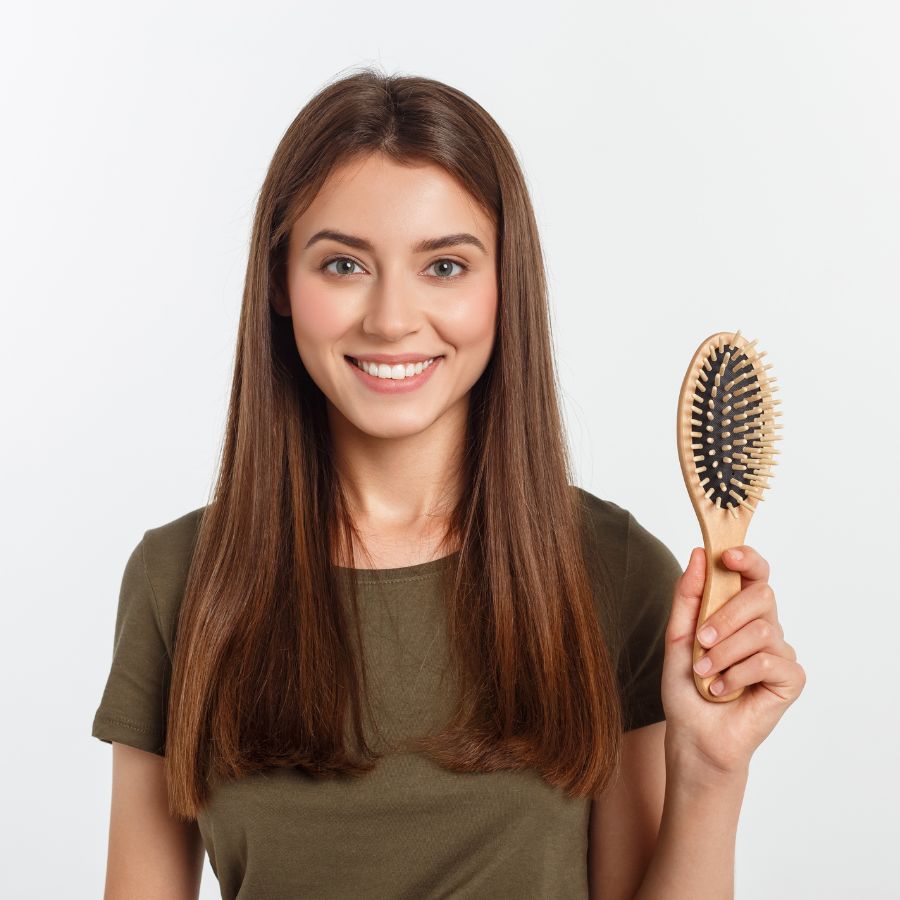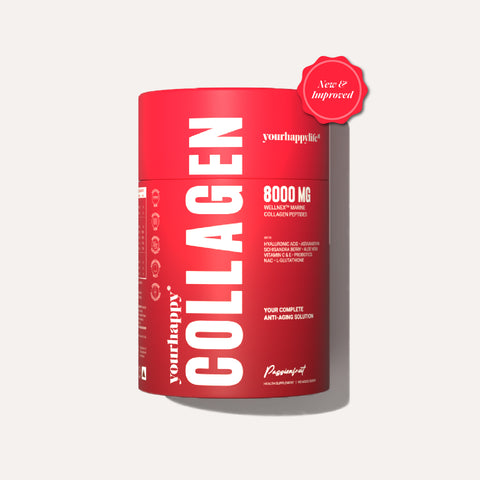News
A Comprehensive Guide To Common Hair Problems And Their Solutions

Hair problems are a common problem that affects people all over the world. Because of its central role in one's appearance, damaged or unhealthy hair can cause a significant drop in quality of life by increasing feelings of shame and pain. In addition, Genetics, hormonal changes, medical issues, medications, stress, poor diet, and environmental factors cause hair problems, like alopecia, etc., worldwide. Read on to learn in detail.
Common Hair Issues And How To Fix Them: A Holistic Guide
Hair loss can be caused by factors like genes, hormonal changes, stress, and micronutrient deficiencies, and it can be disturbing for many people. A complete guide on hair problems:
-
Hair Loss

Hair loss is a frequent hair problem defined by a gradual or abrupt reduction in the quantity of hair on the scalp. Causes range from heredity to hormonal shifts to illness and even stress.
Options for treating hair loss:
- Eating a diet high in iron, biotin, and vitamins C and D, among others, has been shown to stimulate hair development and slow hair loss.
- Avoid tight hairstyles. Tight braids and buns can damage hair follicles and cause hair loss.
- Choose a mild shampoo because frequent washing with harsh chemicals will dry out your hair and scalp.
- Daily scalp massage (for 5-10 minutes) has been shown to increase blood flow and stimulate hair follicles and new hair development.
- Stay out of the extreme heat. Reduce the frequency and intensity of your use of heated styling products like blow dryers and flat irons.
- Consult a physician if your hair loss is severe or sudden, as it may indicate an underlying medical condition.
Also Read: Simply Stop Hair Loss With These 20 Superfoods
-
Dry hair

Dull, brittle, and frizzy hair are common symptoms of dry hair. Lack of moisture and natural oils and exposure to sun, wind, and chlorine can cause it.
Some solutions to treat dry hair:
- Restoring moisture by using a deep conditioning treatment or hair mask once a week is a good idea.
- Avoid using heated styling equipment, such as flat irons and hair dryers, as they can damage your hair by removing the protective oils and moisture they contain.
- Selecting a mild shampoo is essential, so pick one with no sulfates and won't deprive your hair of its natural oils.
- Wear a cap or use a hair product that contains UV protection to shield hair from the sun's harmful rays when you're outside.
- Hydrate from the inside out by drinking lots of water and eating a diet rich in vitamins and minerals.
- Keeping up with frequent trims effectively eliminates split ends and prevents further damage to your hair.
Also Read: Experiencing Sudden Hair Loss? What To Do!
-
Oily Hair

Overactive oil glands on the scalp can contribute to the appearance of oily hair, a common hair problem.
If your hair is prone to oil buildup, try these methods:
- Regular hair washing, ideally once or twice a day, can prevent excess oil from building up in the hair.
- Choose a sulfate-free, mild shampoo for oily hair.
- Don't use too much conditioner on your scalp, as this can make your hair even oilier. Instead, it would help if you focused on the ends of your hair.
- Dry shampoo is a great way to help control oil and keep your hair clean and healthy between washes.
- Wearing your hair up or in braids can help minimize oil production by reducing rubbing between the hair and the scalp.
- Don't use harsh products to style your hair. For example, don't use heavy gels, pomades, or sprays that can make your hair look oily.
-
Thin Hair

Thin hair is a frequent hair condition that is caused by brittle, lifeless strands devoid of volume. It can be caused by heredity, lifestyle, and hormonal changes.
Here are several ways to remedy hair thinning:
- Find shampoos, conditioners, and style aids that are made for fragile, thin hair and use them to add volume.
- Avoid heavy products such as Heavy gels, pomades, and oils that can weigh down the hair and cause it to look thinner.
- Applying a volumizing mousse to your hair is a great way to make it add volume.
- When blow-drying your hair, use a round brush and focus on the roots to create lift and volume.
- Cut your hair short; doing so can assist in fine thickening hair and provide the impression of fullness.
- Get enough proper nutrients by eating a balanced diet high in biotin and iron.
Also Read: Importance of Biotin for Hair Growth
-
Frizzy Hair

A common hair problem, frizzy hair is rough and hard to control. A lack of moisture and humidity in the air can cause it.
Consider these options for controlling frizzy hair:
- Find a moisturizing shampoo and conditioner for regulating frizz, including those containing silicone or oils.
- Heat styling should be avoided. Heat-styling appliances like flat irons and hair dryers can worsen frizz.
- Avoid the sun and wind, which can cause frizz, using a product that offers UV protection for hair.
- Add hydration and reduce frizz with the help of a leave-in conditioner.
- To decrease friction and frizz, wipe the dried hair with a soft cloth instead of rubbing it.
- Apply a serum that fights frizz to the hair to reduce frizz and add shine.
Also Read: Top 10 Hair Hacks For Dry, Frizzy Hair
-
Dandruff

Dandruff is a common hair condition characterized by white or yellowish scalp flakes of dead skin. Yeast overgrowth on the scalp, fungal infections, and dry skin are all potential triggers.
Some ways to deal with dandruff are given follows.
- Use shampoo to reduce dandruff, such as one containing zinc, salicylic acid, or selenium sulfide.
- Switch to a new dandruff shampoo if the one you're using isn't doing the trick. For some persons, the best dandruff control is achieved using a combination of shampoos.
- Be careful to rinse your hair after shampooing to eliminate any remaining dandruff shampoo.
- Stay away from hair styling aids. Dandruff can worsen with strong gels, pomades, and oils on the scalp.
- Maintain a clean scalp and hair. Avoid dandruff by keeping your hair clean and free of oils, grime, and dead skin cells.
- Try anti-dandruff oil in shampoo. For example, antifungal tea tree oil can help treat dandruff. Use tea tree oil shampoo or add a few drops to your shampoo.
-
Split Ends

Split ends are a frequent hair condition characterized by splitting or fraying of the hair shaft, generally at the ends. They can be caused by over-styling, heat exposure, and dehydration.
If your hair has split ends, try these methods:
- Maintaining a regular trim schedule might help eliminate split ends and keep your hair healthy.
- Protect your hair from heat damage using a heat protectant before using hot styling equipment.
- To keep from over-style, you should use heat styling equipment sparingly and at low temps.
- Include a deep conditioning treatment in your hair care routine. This will help to replenish moisture and protect against split ends.
- Avoid tight braids or buns since they can damage your hair and lead to split ends.
- A split-end repair product like Serums and oils can help repair and prevent split ends.
Also Read: The Role of Collagen in Hair Care - The Essential Guide to Keeping Your Hair Healthy
Keep in mind that everybody has different hair. Thus the solutions may vary. For specific recommendations, it's better to talk to a cosmetologist.
The Takeaway

Key Benefits
- Youthful, Smooth & Supple Skin
- Reduced Wrinkles and Fine Lines
- Increased Firmness & Elasticity
- Deeply Hydrated Skin, For a Rested & Refreshed look
- Reduced Under Eye Dark Circles, Acne, Blemishes & Pigmentation
Quality of life can be drastically impacted by hair issues, which affect people all over the world. Therefore, it is essential to seek the counsel of a hair professional to diagnose the cause of the hair problem and formulate a suitable treatment plan to improve the hair's health and appearance. Add on Marine Collagen Powder Advanced to increase keratin production and strengthen follicles for shiny hair. Collagen is found in the hair, the skin, and the nails.
FAQ
What are the most common problems with one's hair?
Hair loss, infections, and itching/scaling disorders are common issues affecting the scalp and hair. Despite daily hair loss, alopecia is a common concern for men and women.
What are hair-healthy practices?
A sulfate-free shampoo, a healthy balanced diet, and adequate rest or sleep daily or every other day are essential for healthy hair.
Can collagen be health-promoting for hair?
Hair, skin, and nails all contain the protein collagen. Collagen supplements - may give nutrients for hair growth, promoting hair health. However, collagen's effects on hair growth and health need further study. Consult a doctor before starting a new supplement routine.



































